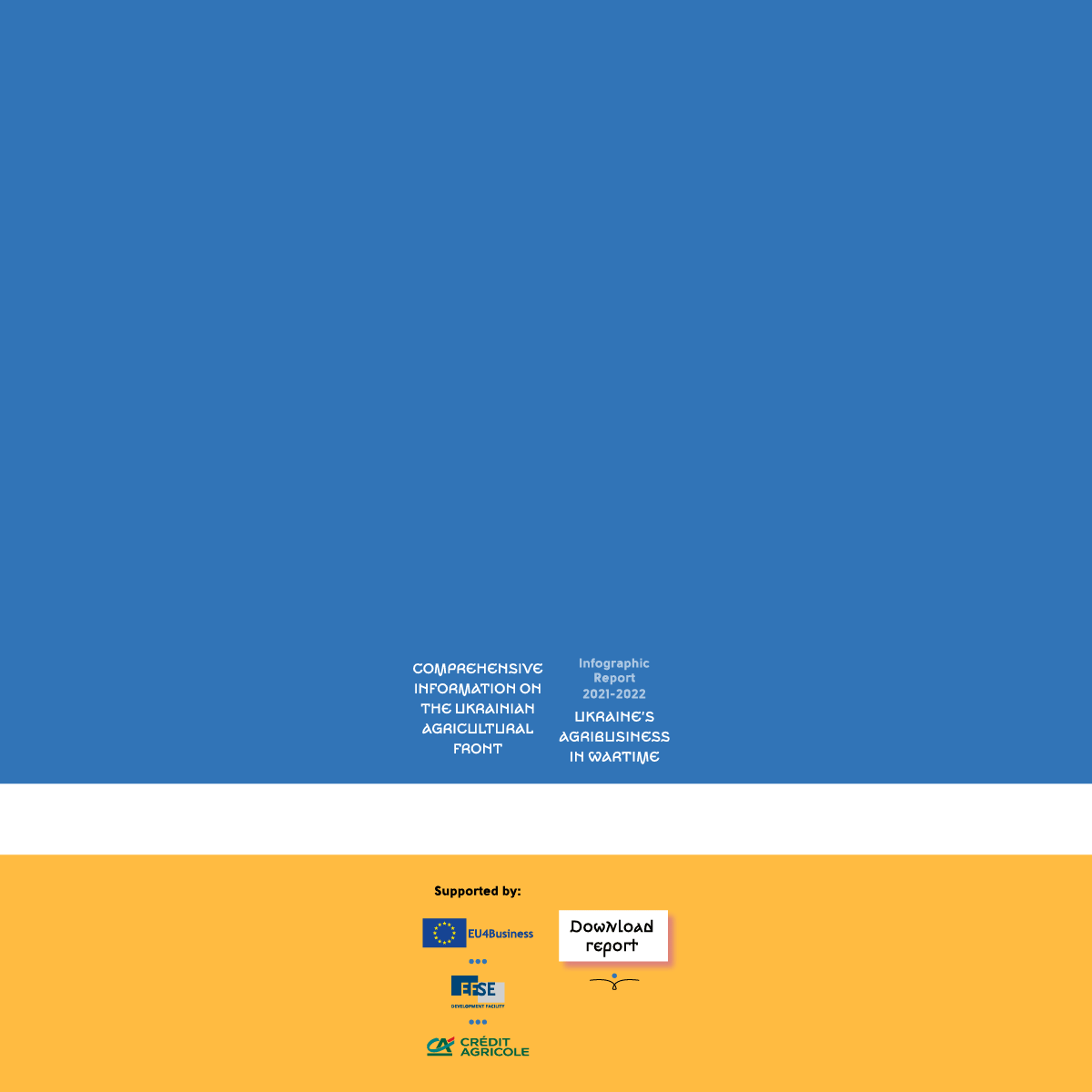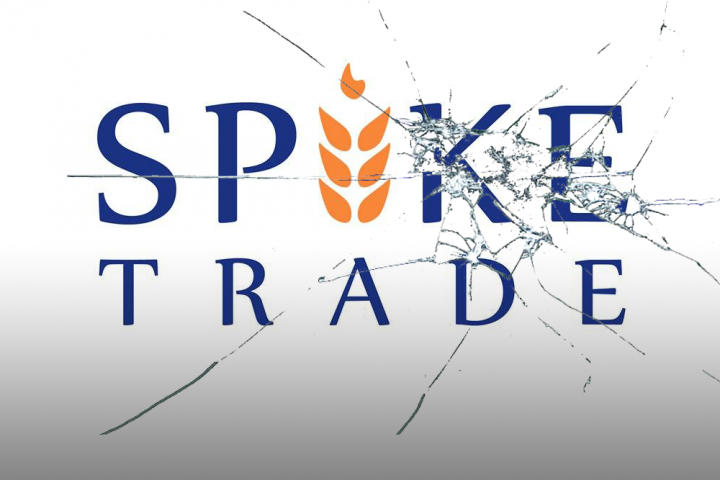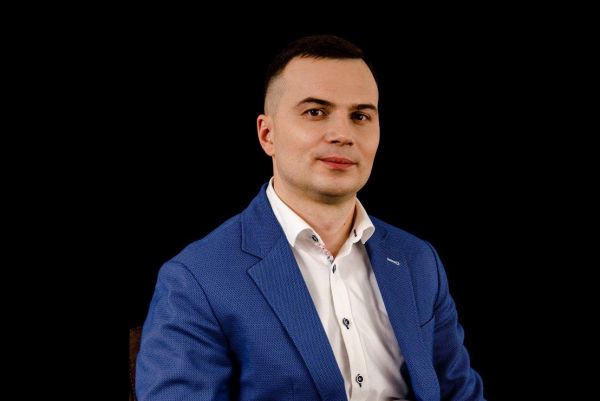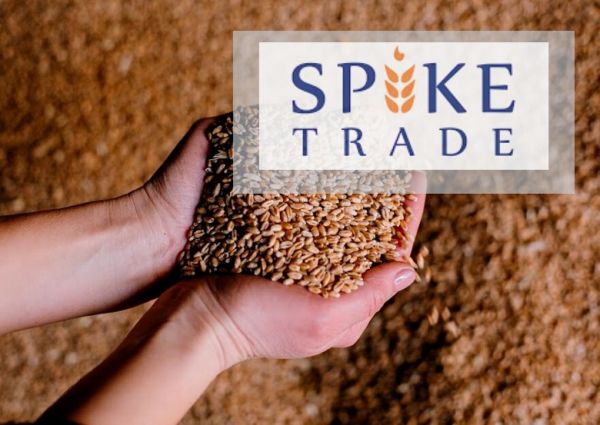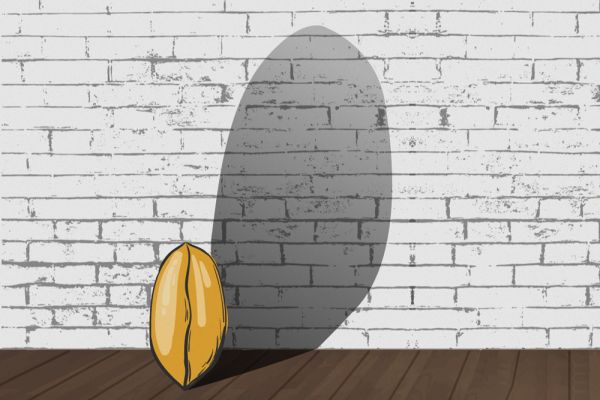To learn more about agribusiness in Ukraine, follow us on Facebook, on our channel in Telegram, and subscribe to our newsletter.
Why Traders Fail: Spike Trade
Recent weeks have been rich with serious grain market events. And it is not only about volatile prices, oil falling and coronavirus, but also about rumours around the default of a large grain trader — Spike Trade. The market regards the company as actually non-existent, while the circle of those willing to collect debts is growing. According to various opinions, the company's debt to agricultural companies amounts to USD 5-7 mln.
Latifundist.com researched the origins of the company's problems, recovered the main stages of its development and talked to the founder of Spike Trade Alexander Solovey to set the records straight.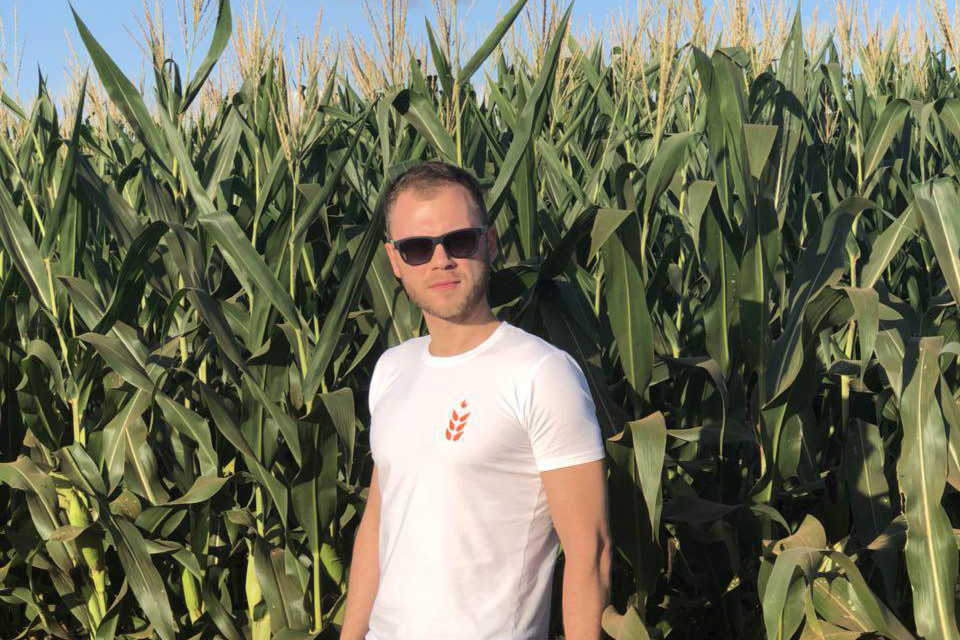
A strong start
Spike Trade made its appearance on the grain map in the tough time for the country and the agricultural market — in 2014. The company was founded by traders Alexander Solovey and Vladimir Korchun who had experience in several international trading companies (incl. Cargill, Viterra Ukraine, VolCore). Although, it should be mentioned that in mid-2019, the shareholders agreed that Vladimir would exit from Spike Trade.
Rather quickly, in fact, it took two years, the company became a recognizable player on the grain market — it joined the club having crossed the 1 mln t mark in trading.
What has gone wrong for the company in a highly competitive market that has not been spoilt by large margins in recent years?
"The company brought liquidity and flexibility to the market, which included higher prices (min. USD 1 higher) and the ability to work both ways: buy and sell. Multinationals could also sell Spike grains. At the same time, they were quite flexible in logistics. For example, at the moments of conventions at one terminal, they could switch the flow to another, providing the farmer with a constant offtake. At that time, this was not typical of a multinational," says the trader of one of the major agricultural companies.
The company's unquestionable advantage was its speed of decision making, which it could afford, as opposed to multinationals. Agreements of the latter may pass 7 or more circles of all kinds of departments. An employee of one such company admits that Spike Trade did make them move faster, offer higher prices and be more flexible.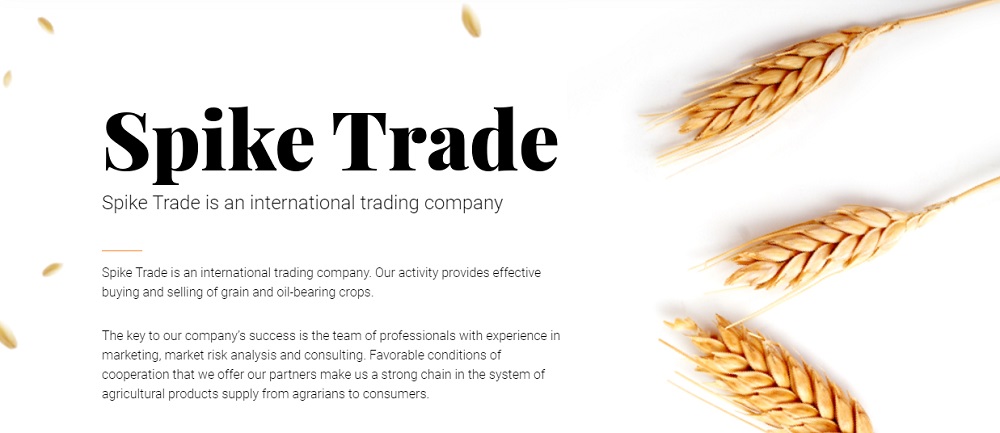
As traders developed, they started advancing their own trading platform. The latter included price analytics, consulting, up-to-date information on ship approach and handling schedules, as well as communication with key buyers in Africa, Asia, Europe and both Americas. The last point is worth addressing separately.
In negotiations with suppliers, Spike Trade traders have always emphasized that they work with buyers, large agricultural companies on different continents. Those, in their turn, ensure a constant flow of contracts and good prices. In Ukraine, as of 2018, the company stated that it traded with more than 300 farmers and 30 trading houses in total physical volume and swap operations volume of more than 2 mln t annually.
Despite the strict compliance of multinational companies and the policy of limited work with one company, all of them worked with Spike, and in large volumes. According to our information, one of the companies, a member of the big four ABCD (ADM, Bunge, Cargill and Louis Dreyfus) had an open trading line with Spike Trade for 100 thou. t on a permanent basis.
Spike Trade actively operated with different option/derivative instruments, ensuring premium price for suppliers. Also, a number of trading instruments made it possible to offer different types of price-fixing contracts to suppliers in the future or in certain ranges.
The name of Spike Trade made a noise in the world: the company was increasing volumes, initiating new financial instruments, acting as a speaker at all kinds of grain forums and trading parties. And since 2017 it started holding spectacular "After Year Market Parties" at the end of the grain season, where all the big players in the business gathered. Following the link, you can last year's party video report.

Not on physical market alone
Simultaneously with the physical market, the company also actively worked on the swap market. Thanks largely to Spike Trade this market was launched in Ukraine.
In an interview with Latifundist.com in 2018, Alexander Solovey noted that "swaps" (A swap is a derivative contract in which one party exchanges or swaps the values or cash flows of one asset for another. Of the two cash flows, one value is fixed and one is variable and based on an index price, interest rate or currency exchange rate.) are an ideal tool for hedging price risks. The feature of such contracts was that they did not imply physical delivery of products. However, they were based on Platts and Thomson Reuters indices, which, as the trader added, have a more than 98% correlation with the physical market.
With regard to the security of this instrument, Alexander Solovey stressed that back in 2017 CME Group (Chicago Mercantile Exchange — ed.) began clearing swap contracts, which increased liquidity and reliability of trade between counterparties.
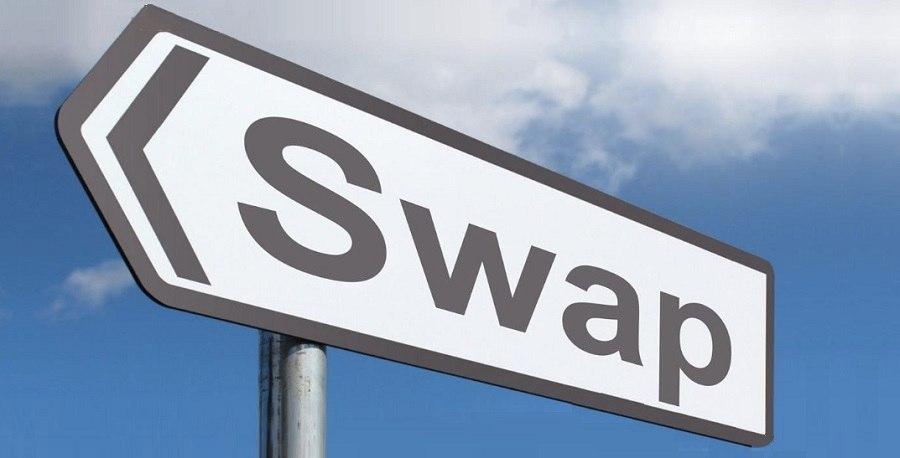
But not everything was so perfect. In March 2019, the grain market was shaken by the default of Cardiff Commodities. It was fraud by Hydra Trading, which stopped performing contracts in front of its counterparties, including a large number of well-known trading companies. The participants of the chain were mostly not cleared. The domino effect did its part.
"There is a chain of non-payment. This results in someone left holding the bad, someone who is not getting that money. A stop on one side of the money flow leads to a stop on the other side and the inability to pay off the obligations," Director of Cardiff Commodities Ivan Cherevko said in an interview.
Learn more: Domino Reaction: Why Traders Fall, Cardiff Commodities Case
This situation resulted in the bankruptcy of several other companies such as Savoy Trading, LikoTerra. There was a rumour on the market that the same happened to Spike Trade but in conversations with their industry colleagues company officials denied it.
At the same time, several market participants told Latifundist.com that they stopped trading with Spike Trade after that.
"They always worked aggressively, raised the price when everyone was falling. They played for high stakes, like in a casino: chips here, chips there. You can win, but there's a high chance that you'll lose. After the Cardiff case, we knew that they had some kind of reserve that helped them out, but all in all, they were on edge. So we decided to stop working with them," says the director of one of the big trading companies.
Another person we spoke with, a financial director of the agricultural holding, notes that the problem with such companies is that they do not own assets and often a financial cushion. "Their money is enough for the operating flow, but they did not have a buffer when the system fails."
After Cardiff, as everyone began calling this case, grain producers were actively discussing what helped the company to get away with it. Most of the assumptions were that somebody had provided the company with financial support.
The same period the company started to work actively with the terminal Transservice-2008 and its trading company Trans Trade. The owner of the companies is a well-known businessman in the trading circles Roman Tereschenko. Market participants agreed that the terminal became one of those who helped the company to survive the crisis.
New times
Over the past six months, according to grain market participants, the company, which was always flexible, has become less and less like itself. The head of the trading department of one of the holding companies says that he stopped working with Spike Trade after they had started two-week delays without clear reasons. The same we heard from other agrarians.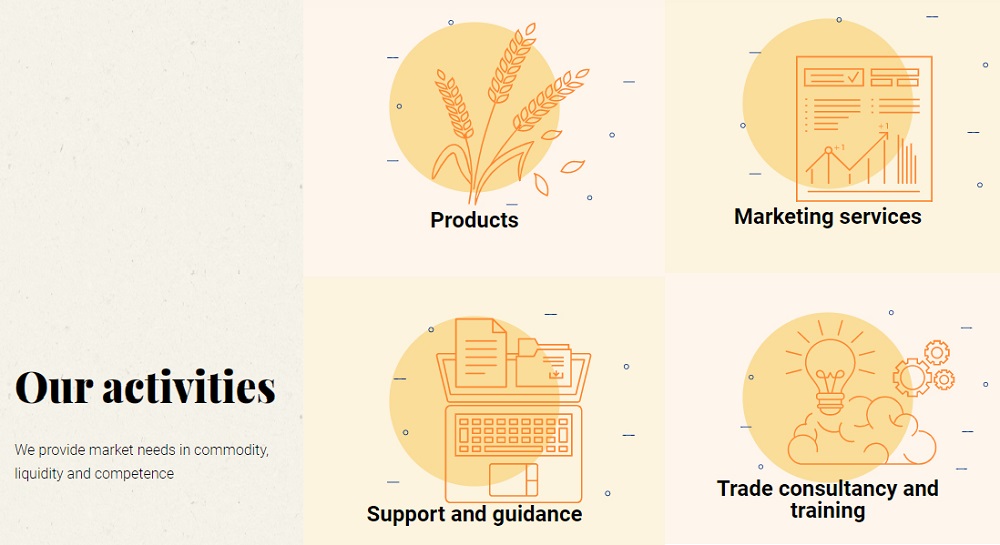
The Ukrlandfarming case was a true wake-up call for the company. The holding said that Spike Trade had not filled the contract for the sale of corn worth USD 7 mln at the previously agreed price. As a result, the company itself had to sell it at a lower price. Ukrlandfarming claims that traders should reimburse the price difference, but they allegedly refuse to do so.
Alexander Solovey noted that all the obligations to the company were fulfilled. And Ukrlandfarming did admit it, he said.
However, this conflict was a catalyst: we were informed by other suppliers about Spike Trade's problems with the contracts performance. Among them are Svitanok, Cygnet Agrocompany. Sergei Orlovskiy, the owner of Agrooiltrade, which is also on this list, says he has received a restructuring proposal from Spike Trade. But he is preparing to file a claim with GAFTA.
Konstantin Tkachenko, Latifundist.com
